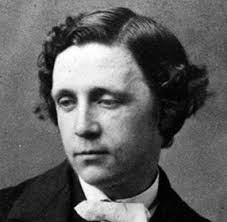Humpty Dumpty's Song

Lewis Carroll, (born January 27, 1832, Daresbury, Cheshire, England—died January 14, 1898, Guildford, Surrey), English logician, mathematician, photographer, and novelist, especially remembered for Alice’s Adventures in Wonderland (1865) and its sequel, Through the Looking-Glass (1871). His poem The Hunting of the Snark (1876) is nonsense literature of the highest order.